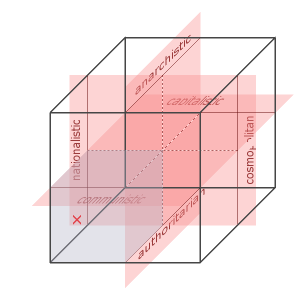Day: September 20, 2012
Hirsi Ali’s Social Evolution
 Ayaan Hirsi Ali reminds us of the depressingly anti-freedom recent history of Islam in her recent Newsweek article, Muslim Rage & The Last Gasp of Islamic Hate. For Hirsi Ali, despite fatwas on Rushdie, 9/11, and the murder of her friend and collaborator, Theo von Gogh, a kernel of hope is nascent in the democracy movements that emerged from the Arab Spring: when people have to govern themselves they will, ultimately, turn towards freedom of expression, thought, and worship.
Ayaan Hirsi Ali reminds us of the depressingly anti-freedom recent history of Islam in her recent Newsweek article, Muslim Rage & The Last Gasp of Islamic Hate. For Hirsi Ali, despite fatwas on Rushdie, 9/11, and the murder of her friend and collaborator, Theo von Gogh, a kernel of hope is nascent in the democracy movements that emerged from the Arab Spring: when people have to govern themselves they will, ultimately, turn towards freedom of expression, thought, and worship.
But is that hope warranted?
Is there any sense of inevitability to the liberal programme that emerged from industrialization, affluence, and education? Or is the “progress” of the West more contingent than that, built from happenstance due to the geographic separation of America from Germany and Japan in World War II combined with the widespread availability of raw materials on the American continent, leading to success in that war and the growth of American post-War power in an unbombed industrial landscape that, ironically, led in turn to the defeat of Soviet Communism, itself claiming an inevitability to the flow of history?
Azar Gat raised a parallel question in The Return of Authoritarian Great Powers (Foreign Affairs, 86 (4), pp. 59-69) when he asked whether the rise of “Authoritarian Capitalism” in the form of China and recent Russia constitutes a viable challenge to the claims of liberal democracy. If so, then the notion that there is any sense of inevitability evaporates like the suppositions of dialectical materialism.
The underlying assumptions are taken for granted among most Americans: (1) all people are the same; (2) all people want freedom; (3) authoritarianism is anti-freedom; (4) people will oppose authoritarianism. It’s a nice thought that has some resonance in, say, the history of the Eastern Block, where economic limitations combined with cronyism and foreign political control led to (4).… Read the rest
